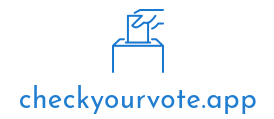Presidential Elections in Algeria
06/08/24 16:51
The upcoming Algerian presidential elections will be significant for the country's political landscape, particularly as Algeria navigates internal and external challenges. Since the resignation of long-time president Abdelaziz Bouteflika in 2019 following widespread protests (Hirak movement), Algerian politics have been in a transitional phase. The protests called for systemic changes in governance, transparency, and accountability.
Key elements to watch in the next elections include:
1. **Political Reform and Popular Demands**: The Hirak movement has expressed continued dissatisfaction with the political establishment, which is perceived to be dominated by military and elite interests. The ability of political candidates to address these concerns will be crucial in determining the legitimacy and credibility of the election. If the next president fails to respond to demands for deep political reforms, it could result in further instability or protests.
2. **Incumbency and Potential Candidates**: President Abdelmadjid Tebboune, elected in December 2019, has faced ongoing challenges related to the economy, political legitimacy, and civil unrest. Whether he runs for re-election, and how other prominent political figures position themselves, will have a major impact on the election dynamics. Tebboune’s handling of Algeria’s issues, including the economy, foreign policy, and political freedoms, will be a central point of debate.
3. **Economic Issues**: Algeria’s economy, heavily reliant on hydrocarbons, has struggled with declining oil and gas revenues. Economic diversification and addressing unemployment, especially among the youth, will be critical campaign themes. Any candidate with a strong economic recovery plan is likely to attract considerable support.
4. **Geopolitical Context**: Algeria’s geopolitical role in the Maghreb and the broader African and Mediterranean region will also influence the election. Relationships with neighboring countries, particularly the complex ties with Morocco and the ongoing Western Sahara conflict, as well as Algeria’s relationship with Europe, will shape voters' perceptions of candidates’ foreign policy strengths.
5. **Voter Participation and Legitimacy**: A low voter turnout, as witnessed in previous elections, could undermine the perceived legitimacy of the next president. It remains to be seen whether the Algerian electorate, particularly the younger generation, will engage in the political process after years of disillusionment.
The 2024 presidential elections will be a crucial test of Algeria’s political evolution post-Bouteflika. The outcome could either strengthen reformist momentum or entrench the status quo depending on the candidates, voter turnout, and the government’s response to electoral and political demands.
Key elements to watch in the next elections include:
1. **Political Reform and Popular Demands**: The Hirak movement has expressed continued dissatisfaction with the political establishment, which is perceived to be dominated by military and elite interests. The ability of political candidates to address these concerns will be crucial in determining the legitimacy and credibility of the election. If the next president fails to respond to demands for deep political reforms, it could result in further instability or protests.
2. **Incumbency and Potential Candidates**: President Abdelmadjid Tebboune, elected in December 2019, has faced ongoing challenges related to the economy, political legitimacy, and civil unrest. Whether he runs for re-election, and how other prominent political figures position themselves, will have a major impact on the election dynamics. Tebboune’s handling of Algeria’s issues, including the economy, foreign policy, and political freedoms, will be a central point of debate.
3. **Economic Issues**: Algeria’s economy, heavily reliant on hydrocarbons, has struggled with declining oil and gas revenues. Economic diversification and addressing unemployment, especially among the youth, will be critical campaign themes. Any candidate with a strong economic recovery plan is likely to attract considerable support.
4. **Geopolitical Context**: Algeria’s geopolitical role in the Maghreb and the broader African and Mediterranean region will also influence the election. Relationships with neighboring countries, particularly the complex ties with Morocco and the ongoing Western Sahara conflict, as well as Algeria’s relationship with Europe, will shape voters' perceptions of candidates’ foreign policy strengths.
5. **Voter Participation and Legitimacy**: A low voter turnout, as witnessed in previous elections, could undermine the perceived legitimacy of the next president. It remains to be seen whether the Algerian electorate, particularly the younger generation, will engage in the political process after years of disillusionment.
The 2024 presidential elections will be a crucial test of Algeria’s political evolution post-Bouteflika. The outcome could either strengthen reformist momentum or entrench the status quo depending on the candidates, voter turnout, and the government’s response to electoral and political demands.
